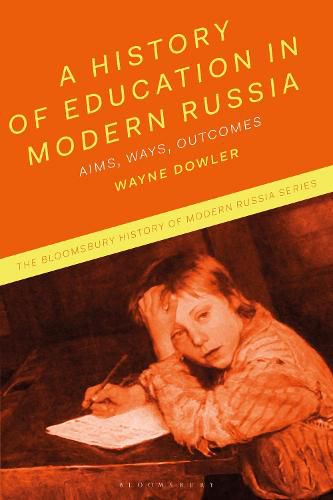Readings Newsletter
Become a Readings Member to make your shopping experience even easier.
Sign in or sign up for free!
You’re not far away from qualifying for FREE standard shipping within Australia
You’ve qualified for FREE standard shipping within Australia
The cart is loading…






A History of Education in Modern Russia is the first book to trace the significance of education in Russia from Peter the Great’s reign all the way through to Vladimir Putin and the present day.
Individual chapters open with an overview of the political, social, diplomatic and cultural environment of the period in order to orient the reader. Dowler then goes on to analyse the aims of education initiatives in each era before considering the ways in which Russians experienced education, both as students and as teachers. Each chapter concludes with an assessment of the outcomes and consequences of education policies in the period, both the successes and failures as well as the impact of education on the cultural, social, economic and ultimately political environments. The chronologically arranged book also traces and then summarises underlying key themes like the tension between an open system of education and an estate-based system; the push and pull between utility and the broader goal of human development; and the effects of centralized, authoritarian control that for much of the period limited local initiative and starved the regions of adequate resources.
$9.00 standard shipping within Australia
FREE standard shipping within Australia for orders over $100.00
Express & International shipping calculated at checkout
A History of Education in Modern Russia is the first book to trace the significance of education in Russia from Peter the Great’s reign all the way through to Vladimir Putin and the present day.
Individual chapters open with an overview of the political, social, diplomatic and cultural environment of the period in order to orient the reader. Dowler then goes on to analyse the aims of education initiatives in each era before considering the ways in which Russians experienced education, both as students and as teachers. Each chapter concludes with an assessment of the outcomes and consequences of education policies in the period, both the successes and failures as well as the impact of education on the cultural, social, economic and ultimately political environments. The chronologically arranged book also traces and then summarises underlying key themes like the tension between an open system of education and an estate-based system; the push and pull between utility and the broader goal of human development; and the effects of centralized, authoritarian control that for much of the period limited local initiative and starved the regions of adequate resources.